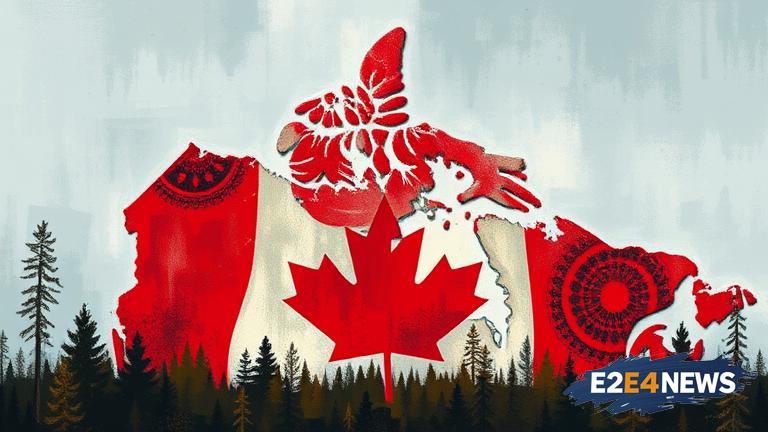The topic of Indigenous rights and reconciliation in Canada has been a longstanding and contentious issue, with many Indigenous communities facing significant challenges and injustices. The Canadian government has been criticized for its handling of these issues, with many arguing that not enough is being done to address the systemic problems that have led to the current state of affairs. In recent years, there have been numerous reports and studies highlighting the disparities faced by Indigenous peoples in Canada, including poor living conditions, inadequate access to healthcare and education, and high rates of incarceration. The discovery of unmarked graves at former residential schools has also brought attention to the dark history of Canada’s treatment of Indigenous peoples. Many are calling for the government to take immediate action to address these issues, including providing more funding for Indigenous communities and implementing policies to address the systemic inequalities. The Canadian government has pledged to take steps to address these issues, including the implementation of the United Nations Declaration on the Rights of Indigenous Peoples. However, many are skeptical about the government’s commitment to meaningful change, citing a lack of concrete action and a history of broken promises. The issue of Indigenous rights and reconciliation is complex and multifaceted, requiring a comprehensive and nuanced approach. It will require the government to work in partnership with Indigenous communities to develop solutions that address the unique needs and challenges of each community. This will involve providing more funding and resources to support Indigenous-led initiatives and projects, as well as implementing policies to address the systemic inequalities and injustices faced by Indigenous peoples. The government will also need to take steps to address the legacy of residential schools and the ongoing impacts of colonization, including providing support for survivors and their families. Furthermore, the government will need to work to rebuild trust with Indigenous communities, which has been eroded over many years of broken promises and inaction. This will require a commitment to transparency and accountability, as well as a willingness to listen to and learn from Indigenous peoples. Ultimately, addressing the issues of Indigenous rights and reconciliation will require a fundamental transformation of the relationship between the Canadian government and Indigenous peoples, one that is based on mutual respect, trust, and a commitment to justice and equality. The Canadian government has a unique opportunity to make meaningful progress on this issue, but it will require a sustained commitment to action and a willingness to work in partnership with Indigenous communities. The eyes of the nation are on the government, and many are waiting to see if they will take the necessary steps to address the ongoing injustices faced by Indigenous peoples. The future of Indigenous rights and reconciliation in Canada hangs in the balance, and it remains to be seen whether the government will rise to the challenge and take the necessary steps to create a more just and equitable society for all. The government’s response to this issue will have far-reaching implications, not just for Indigenous communities, but for the entire country. It is an opportunity for Canada to reclaim its reputation as a leader in human rights and social justice, and to create a brighter future for all Canadians.
